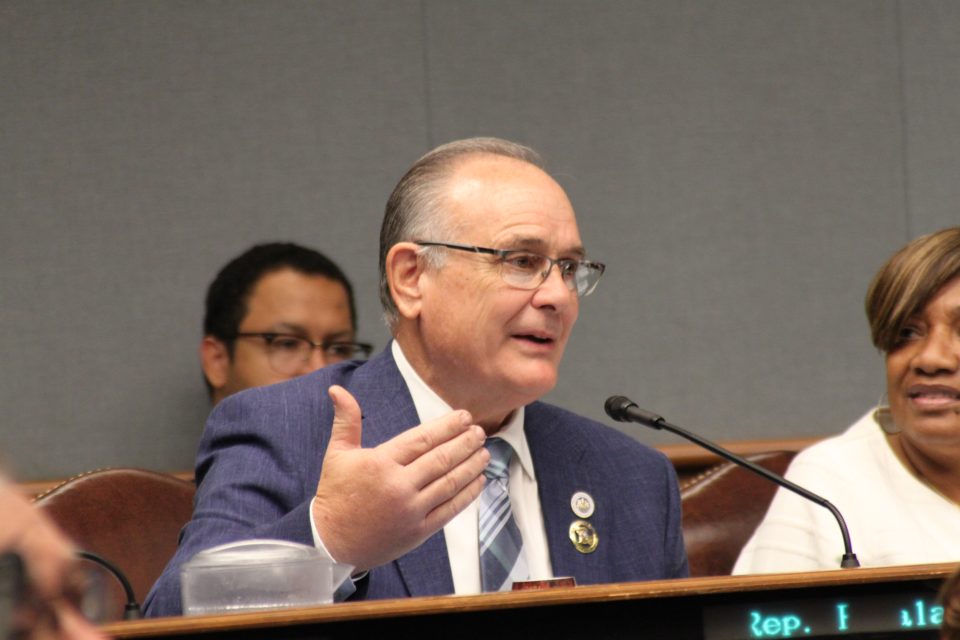
The Southern Home – Point of Vue March 2023
March 1, 2023
South Louisiana Priorities Funded in Army Corps Work Plan
March 2, 2023By Gabby Jimenez
The Task Force on State Recognition of Indian Tribes met Wednesday for the last time without establishing any set criteria for recognizing tribes in Louisiana.
House Bill 660 established the Native American Commission in 2018 to promote Native American culture and identify needs facing that community. One member from each of the 15 tribes already recognized serves on the commission.
Part of the commission’s responsibility includes establishing clear criteria for tribes seeking formal state recognition by the Legislature.
The task force was formed during the 2022 legislative session to look further into the issue. Senate Resolution 198 says the task force was scheduled to end by March 1, 2023.
There are four federally recognized tribes from Louisiana and 11 state-recognized tribes.
The federally recognized consist of the Jena Band of Choctaw, the Tunica-Biloxi Tribe of Louisiana, the Coushatta Tribe of Louisiana and the Chitimacha Tribe of Louisiana.
The state recognized tribes consist of the Adai Caddo Indians of Louisiana, Bayou Lafourche Band of Biloxi-Chitimacha Confederation of Muskogees, Choctaw-Apache Tribe of Ebarb, Clifton Choctaw Tribe of Louisiana, Four Winds Cherokee, Grand Caillou/Dulac Band of Biloxi Chitimacha Choctaw, Jean Charles Choctaw Nation, Louisiana Band of Choctaw, Natchitoches Tribe of Louisiana, Pointe-au Chien Indian Tribe, and the United Houma Nation.
There are certain requirements tribes must meet to be federally recognized. Those tribes are seen as having some tribal sovereignty and can receive services and protections due to their status.
Sen. Heather Cloud, R-Turkey Creek, noted that half a dozen states have some form of state recognition for tribes. States that do not have their own criteria follow federal recognition processes.
Cloud said the state has not recognized a tribe since 2004.
The requirements to becoming recognized by the state are not clear, Cloud said.
There are other tribes throughout Louisiana that are not recognized by the federal or state government. In 2022, the Avoyel-Taensa and Apalachee Indians Talimali Band tribes were denied state recognition.
Fred Simon, the newly elected primary chief of the Natchitoches Tribe of Louisiana, said the main problem the tribes faced was being unable to achieve a quorum to pass criteria.
“We have four members that don’t care,” Simon said. “They’re already federally recognized. State laws do not pertain to them anymore … The money that the federal government sets aside gets smaller. Their piece gets smaller every time a new tribe is elected.”
Simon said the tribe representatives drafted a document in November that was ready to be voted on, but because members were ill or absent from meetings, the tribes have always been unable to vote.
“We want it to work, we want to be involved, but we’re just held down by this anchor,” Simon said.
Kimberly Walden, the Chitimacha Tribe secretary-treasurer, said she had concerns about the legitimacy of some of the groups that have been recognized by the state.
“The federally recognized tribes aren’t trying to be gatekeepers, but there’s a difference between descendancy and maybe having a little bit of tribal blood back in your history and wanting that acknowledged,” Walden said.
Walden said the Chitimacha Tribe has an extensive ancestry process to become a member, including doing a DNA test to prove you are descendent.
Kristian Poncho, the secretary treasurer of the Coushatta-Tribe, said the state should be less involved in creating a guideline for state recognition and instead should assist and advocate for tribes to become federally recognized.
“If we go down this road, we undermine and eliminate the legitimacy of tribal governments … The harm associated with state action attempting to recognize or classify Indian tribal governments on their own is significant,” Poncho said.
The Native American Commission will continue to be responsible for creating criteria. Cloud said the task force could potentially be reinstated in the future.
“This is the end of this particular task force, but it’s not the end of the mission,” Cloud said.









